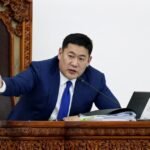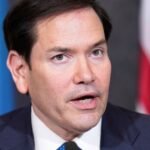Trump administration moves to end temporary status for 530,000 Cubans, Venezuelans and others
WASHINGTON — The Trump administration is moving to end temporary legal status for more than 530,000 people who arrived in the U.S. from Cuba, Haiti, Nicaragua and Venezuela through Biden-era temporary parole programs, according to a Federal Register document posted on Friday.
The parole programs are set to end on April 24, 30 days after the document is expected to be officially published in the Federal Register on Tuesday. People who had parole under these programs “must depart the United States before their parole termination date,” the document said.
The move comes after President Donald Trump on his first day in office directed his administration to “terminate all categorical parole programs that are contrary to the policies of the United States,” pointing specifically to parole programs for Cubans, Haitians, Nicaraguans and Venezuelans.
Homeland Security Secretary Kristi Noem wrote in the notice that her department’s termination of the parole programs “directly” fulfills Trump’s order and “complements and underscores the Administration’s pivot to a foreign policy that prioritizes the United States’ interests in a secure border.”
“These programs do not serve a significant public benefit, are not necessary to reduce levels of illegal immigration, did not sufficiently mitigate the domestic effects of illegal immigration, are not serving their intended purposes, and are inconsistent with the Administration’s foreign policy goals,” she said in the document.
The Department of Homeland Security will work to “remove” people who entered the U.S. under the programs and do not leave before the parole is terminated.
“Aliens who have since obtained a lawful immigration status or other basis that permits them to remain in the United States are not required to depart the United States pursuant to this notice,” the document noted.
The parole programs had been put in place by the Biden administration and allowed migrants to stay in the U.S. for up to two years. Migrants were required to apply online, go through background checks and have a financial sponsor. They would also receive work authorization in the U.S.
The Biden administration began a parole policy for Venezuelans in 2022, later expanding the initiative to Nicaraguans, Haitians and Cubans. Under the initiative, up to 30,000 eligible people from the four countries combined could temporarily enter the U.S. each month.
When reached for comment on the end of the parole programs, a senior DHS official slammed the programs as “disastrous.”
“The termination of the CHNV parole programs, and the termination of parole for those who exploited it, is a return to common-sense policies, a return to public safety, and a return to America First,” the official said, using an abbreviated name for the programs.
Previous Trump administration moves setting up efforts to curtail parole programs have faced court challenges. A class action lawsuit was filed against the Trump administration last month urging the court to block the programs’ termination.
You may be interested

Medik8 SPF cream that ‘reduces fine lines and wrinkles’
new admin - Jul 29, 2025[ad_1] Skincare is a top priority for many people to not only protect their skin, but also to slow down…

Federal grant cuts put school mental health resources at risk, staffers say
new admin - Jul 29, 2025As public school districts prepare for a new school year, there are concerns about dwindling resources stemming from federal funding…

DEI Skepticism Threatens to Derail Japan’s Gender Equity Push
new admin - Jul 29, 2025[ad_1] Japan needs to admit that long-running efforts to address gender inequality in higher education aren’t working, experts say, with…

































